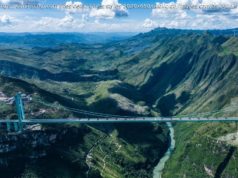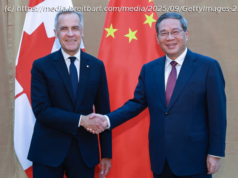What happened in the casino hub might not necessarily be repeated locally
When it comes to Hong Kong and Macau, it’s a tale of two cities that both can draw inspiration from for mutual reflection.
While Macau successfully introduced its national security legislation in 2009, Hong Kong is still mired in endless debate over how and when to do it, despite Beijing’s constant reminders of the city’s constitutional obligation to safeguard national security under Article 23 of the Basic Law .
And now, a historic new development has sparked very mixed feelings here: the deployment of the People’s Liberation Army garrison in Macau to help with disaster relief, for the first time in 18 years since the former Portuguese enclave’s return to Chinese sovereignty.
On the request of the Macau government and with the approval of the Central Military Commission, PLA soldiers were sent into the streets to help with recovery efforts in the wake of Typhoon Hato. The worst storm to hit the casino hub in more than half a century left 10 people dead, some 244 injured, and tens of thousands without water or electricity.
Video clips and photos showing truckloads of PLA soldiers cleaning up the mess in the sweltering heat went viral. Such scenes are common on the mainland, but unprecedented for either of the two special administrative regions of Macau and Hong Kong.
While mainland netizens were quick to salute the soldiers, and many Macau residents were grateful for the timely help in their hour of need, the reaction in Hong Kong was not so enthusiastic.
Understandably, it raised an immediate question: would PLA troops be deployed here one day if the city faced a crisis – be it a natural disaster or a public order breakdown – deemed beyond the control of the local government, police force and emergency agencies?
Chief Executive Carrie Lam Cheng Yuet-ngor dismissed it as a hypothetical question, which did little to address such concerns, but a look into the similarities and differences between the two cities could shed some light.
The most significant similarity between Macau and Hong Kong is the “one country, two systems” model they follow, under which PLA troops stationed in the two cities will remain in their barracks unless requested to come out and help. That is what happened in the casino hub this time.
In this particular case, it’s quite obvious that without the PLA, the recovery effort after the killer typhoon would not have been as swift and efficient, especially with another major storm threatening the region. But, at the same time, the presence of soldiers on the streets would also have embarrassed the local government to a certain extent.
Hong Kong has a reputation for strong municipal administration, with well-developed drainage systems as well as effective flood and landslide prevention measures in place to prevent typhoon disasters, though there is no room for complacency on the part of both the government and public.
No one can control the power of Mother Nature. Perhaps that’s why Lam refused to confirm or deny the possibility of the PLA being called upon to help in the future.
Hong Kong may still be a long way off from taking such a step – it did not do so during 79 days of road blockades by pro-democracy protesters in the Occupy campaign three years ago, a clear indication of its extra-cautious approach.
At the end of the day, it’s much ado about nothing to worry and assume that what happened in Macau will be repeated soon in Hong Kong.
However, it’s also a reality people need to understand that the PLA is a symbol of national sovereignty, tasked with defending the city. Of course, everything must strictly follow the Basic Law and other relevant legislation.






